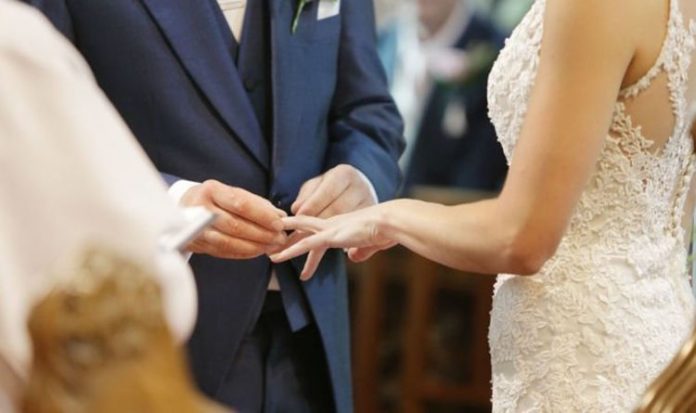The Marriage Foundation warns the high cost of weddings is putting people off getting wed and supports proposals to allow people to marry where they choose. A Law Commission consultation on proposals which would allow people to tie the knot on beaches, in parks and in private gardens as well as in homes and in a greater range of venues closes Monday.
The foundation is concerned that people in lower incomes are much less likely than their better off counterparts to be married when they have children.
It reports that in 1988 more than two thirds of parents of newborn babies in England and Wales were married (68 percent) but by 2019 the figure had crashed to 35 percent. In contrast, there has only been a decline from 91 percent to 76 percent for parents in higher-income groups.
Sir Paul Coleridge, a former High Court judge who founded the foundation, attacked the “pernicious perception that marriage is out of date and only for the rich”.
He argues that allowing couples to marry in the way they want with simpler “naked” wedding ceremonies will help to reverse this “very worrying” trend.
Sir Paul said: “For far too long the perception has been growing that marriage is an out-of-date social arrangement reserved for the better off who can afford a lavish wedding and reception. Historically this was never so.”
With the average cost of a wedding reportedly hitting £20,000, he argues this is beyond the reach of many couples.
He said: “The Law Commission’s exciting, new proposed reforms will relax many of the restrictions and open up the process so that couples can design their own wedding and tie the knot wherever they choose whether in their local church or local pub, a castle, a field or even in McDonald’s. We hope and believe that this will re-democratise marriage and weddings and usher in a new era of simpler, pared back ceremonies so that marriage will once again be for all.”
The Law Commission states that the main law governing marriages dates from 1836 and “has failed to keep pace with modern life”.
At present, couples have to choose between a religious ceremony or a strictly secular one. The proposals would allow people greater flexibility to use a variety of ceremonies, and also provide a framework so humanist celebrants could conduct legally binding weddings..
Sir Paul said: “The benefits of marriage derive from the mutual, binding public commitment that the couple make to each other in front of their family and friends. This sweeps away ambiguity and provides them with the best available emotional satisfaction and legal protection for themselves and their children.
“Sadly, unrealistic expectations created by glossy magazines and far-fetched social media postings have increasingly put off those on low incomes. For too many, the idea of marrying has meant primarily a huge and overly expensive reception which misses the real point of the marriage.
“So, our message is clear, keep it simple and never let the cost of a wedding be a barrier to marriage.”







